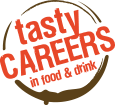Top tips for selling your transferable skills!
The Scotch Whisky industry supports many different jobs, actually far more than you might initially imagine. As you can see from our careers map, you can work in marketing, tourism, production, engineering, health and safety… You could be responsible for the people, the planet and the prosperity of this iconic product and industry.
But what if you have come from another profession or sector? What if you are entering the job market after a break, or for the very first time? It can feel daunting to search and apply for positions if you are considering a move when you are unclear about how to articulate your transferable skills and experience.
Well, we wanted to help so we have put together some top tips for you. We spoke to some of our recruitment experts out there in the Scotch Whisky industry to give you a flavour of the kinds of things you can consider.
- Consider current or modern transferable skills.
Nicole, who has worked in human capital at International Beverage for the past 6 years, recommends highlighting your experience in self-management, social intelligence and innovation. These areas are highly prized in the Scotch Whisky industry as it continues to embrace new technologies and ways of working.
- Identify what the employer is looking for.
John, a recruitment expert who came to the Scotch Whisky sector earlier this year after clocking up 25 years of recruitment experience in the technology and financial services sectors, and now works in in-house recruitment at William Grant & Sons, advises that you determine exactly what the employer is looking for in any particular role. A good way to do this is to scan the job advert and highlight any key words or phrases which you feel are similar to your own skillset. Once you have done this, and have a better understanding of your compatibility to the role, amend your CV to include the key words and phrases, using, where possible, the “house style” of writing. Mark, Senior HR Advisor at The Glenmorangie Company started his career in HR as a Recruitment Consultant. He then moved into Learning & Talent where he managed a team of Learning Coordinators before becoming an HR Manager; all within the Energy Industry. Mark agrees that you should: “highlight within the job ad, the key skills, competencies and experience the role requires and think about similarities and transferable skills in your own experience.”
- John, William Grant & Sons
- Mark, Glenmorangie
- Consider what makes you stand out.
It’s always important, according to Kelly at International Beverage, that you ensure your CV stands out from the rest by bringing to life some of your key skills. Kelly is a recruitment and people expert who has worked in the industry for 2 years. She brings cross-sector experience from 18 years of management roles within the retail industry. Drawing on this experience, Kelly note that some of the things that she looks out for in applications are self-awareness, creativity, problem solving and resilience.
- Tailoring your CV is of the utmost importance.
As well as recommending that you carefully review the advert, Mark also recommends that you tailor your CV for the role you are applying for. This is because many recruitment processes are designed to remove unconscious bias from the selection process. In the absence of names, pronouns etc, the review is based purely on the skills and experience so you must make it specific by focusing on results rather than transactional tasks. All of this has the added benefit of aiding a diverse candidate pool.
- Aim for a higher role
What about if you are seeking the next stage of your career and perhaps looking for another sector in which to develop? Often candidates in this phase of their careers look for the support of agents or head hunters. We spoke to Ailsa from FWB Park Brown to find out her take on this, sometimes hazy, stage. Ailsa notes the importance of candidates demonstrating how they have ‘acted up’ in their current role, how they have gone above and beyond their remit. Aim to prove that you can ‘stretch’ into bigger responsibility, be that in leadership, budget level, strategy and so on. Also consider the next stage of the process. Be prepared to be challenged hard on your achievements, and make sure you have some well thought out examples to show how you will bridge any perceived gap between your experience in your current role and the requirements of the new role.
- Nicole, International Beverage
- Gillian, Diageo
In conclusion, Gillian, Learning for Life Programme Manager at Diageo sums up a really important point to consider during your job hunt. Gillian, an expert in early careers and lifelong learning says: “I think being genuine and authentic is key. Being honest about what’s important to you, your moral compass, standing up for what you believe is right. These are all things you can take with you from job to job and will help you make really informed decisions and do the right thing. Most of us can learn how to do a new job but it’s your purpose that drives you to be the very best you can be.”
See here for current whisky jobs.






